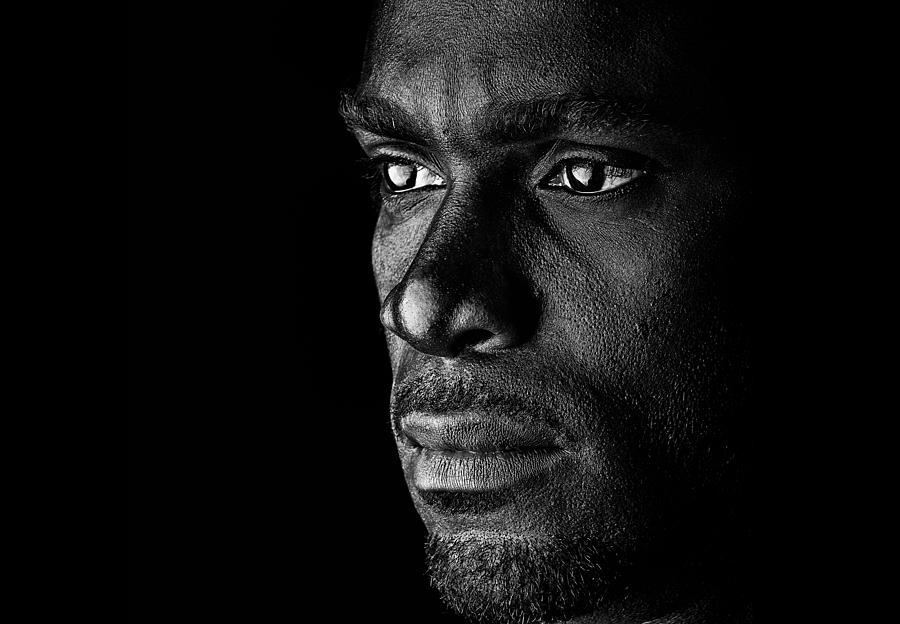July 28, 2020 by Jermaine E. Martin
“If we lose sight of seeking truth, we become distracted by intentions at the expense of results.”
In everyday life, it’s amazing how our emotions get ahead of our ability to think rationally and critically. Some of what should be the most obvious and basic things in life are so tough to grasp when we allow our emotions to get involved. Rational and fact-based decision making quite often takes a backseat to our emotional instincts. It’s sad to say, but there are a lot of people that are in power and make a living off of other’s strictly emotionally based decision making and their inability to process and evaluate information critically.

This is commonly on full display when we turn on the TV or pick up a newspaper and are presented with sound bites or simple answers to complex questions. A lot of times, complex questions or issues are framed as simple questions or issues on purpose. The purpose being to persuade and encourage over simplification of the issue or problem. For example, if you ask the average high school or college student if he or she thinks that water should be free, you probably would get a resounding “yes” for an answer. If you ask that same student if he or she thinks that water companies shouldn’t have to pay their employees, you probably would get a definite “no.”
Immediately, we see the inconsistencies in these two positions. “How can we have clean water without paying someone to provide it?” Without considering the basic costs and economics associated with providing this so called “free” water, the students failed to think “critically” before forming their opinions. Two simple questions come to mind when considering whether or not water should be free: 1. “Who will pay for cleaning and purifying this ‘free’ water?” 2. “Who will pay for maintaining the infrastructure that delivers this ‘free’ water?” As you can see, by not asking ourselves critical and important questions pertaining to even the most straight forward and simple subjects, we can easily form illogical opinions and conclusions due to the traps that are put in place by our emotions and feelings. Simply “feeling” that water, healthcare, food or any other perceived life necessity should be free is not a position based in sound, consistent logic. Just because a position invokes a certain level of emotion or is highly supported in certain social circles does not qualify it as a logical or even realistic position. This “free” water argument is a simple and straightforward example of a scenario that demonstrates how quickly and easily we can be suckered by our emotions. After all, who wouldn’t want free, clean, and safe drinking water for everyone?
As mentioned earlier, some people in our society start businesses and even run for public office based on their assumptions about our inability to think critically and ask the right questions. When it comes to having a heart for your fellow human being, I have come to realize that Americans are some of the most giving and charitable people in the world. Sadly, the feelings and emotions associated with giving and charity are sometimes viewed as a weakness and something to exploit by some among us. It is their assumption that feelings and emotions will dominate the decision making process, which allows for the opportunity to exploit and deceive. For a deceptive business, the target could be an uninformed customer or in the case of a savvy politician, a low information voter. To them, it’s all about “how you feel,” rather than truth and results. If we lose sight of seeking truth, we become distracted by intentions at the expense of results.
“Perception unchallenged becomes reality.”
It takes effort to think critically and to seek the truth in all matters, especially in a world where information surrounds us in every direction. Practicing critical thinking isn’t so much about being the smartest person in the room. It’s more about having a mindset that is trained to avoid making assumptions and forming opinions without first asking the right questions. At the root of most assumptions and opinions are personal biases. We all naturally have personal biases regarding particular issues or subjects. As critical thinkers, we must identify and minimize these personal biases to prevent unintentional influences on our thoughts and judgment. Our culture, environment, and upbringing can play a major role in how we feel about certain subjects. In order to think critically, it is important to disregard these extraneous personal influences and make it our goal to be guided by knowledge and facts that are in agreement with reality and truth, even if that means that we have to go against our own previously valued beliefs.
Individually and collectively, we have to be willing to take responsibility for our intellectual abilities and be prepared and confident enough to admit our intellectual weaknesses. It is only then that we become truly empowered and guided by truth. Critical thinking seeks to constrain our thought processes in truth and sound reasoning. Without such constraints, it becomes easy to neglect history, facts, and data to support our positions.
Jermaine E. Martin is an empowerment leader, speaker and author of “American Mindset: Unstuck & Unstoppable” (Amazon), out now.